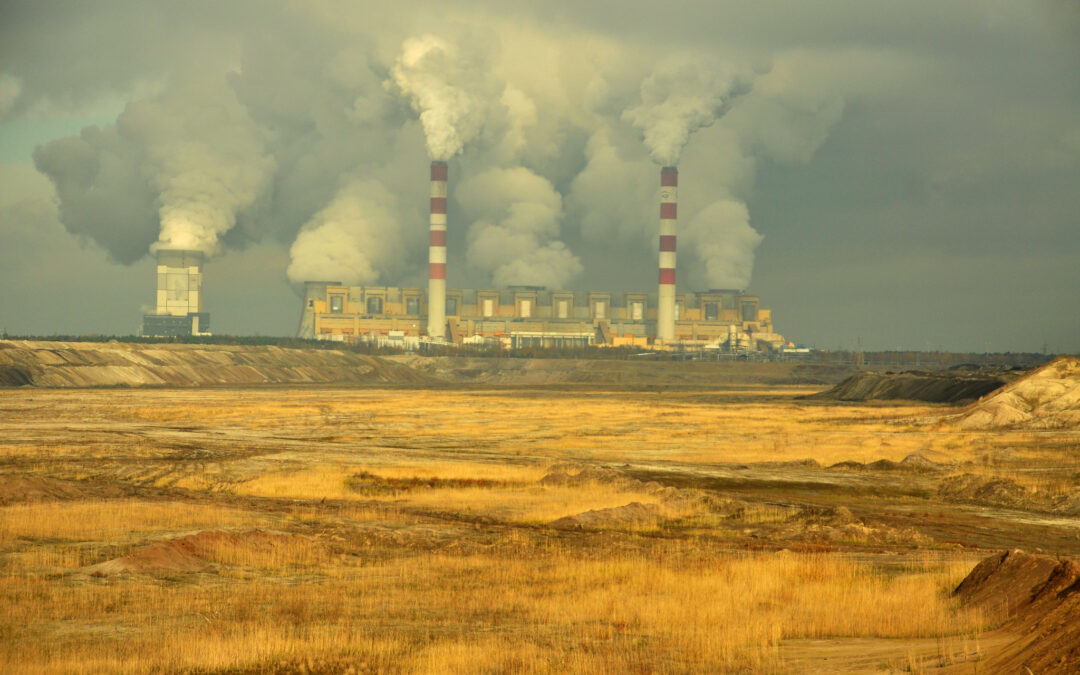Poland may seek to block the European Union’s climate package if its arguments continue to be ignored, warns a deputy prime minister. The Polish government blames Brussels for the current rise in energy prices. Gas bills jumped by 54% in Poland at the start of this year and electricity by 24%.
This week, a state-owned energy supplier sent customers information that the majority of their bills result from EU policies. However, critics note that the costs are so high because the government has continued Poland’s reliance on high-emitting coal.
Speaking yesterday to Polsat News, Jacek Sasin – who as well as being deputy prime minister also oversees the ministry for state assets – was asked if Poland should seek to “terminate” the EU’s climate package.
“Perhaps it will have to be done if it turns out that our partners in the EU remain deaf to our rational arguments,” said Sasin. “Today, more than 60% of the electricity bills that every Polish family pays are EU costs for, among other things, CO2 emissions.”
This week, state-owned Tauron – Poland’s biggest supplier of electricity, with over a third of the market – wrote to its customers to inform them that 59% of electricity costs result from EU emissions allowances and a further 8% from EU requirements on renewable energy and energy efficiency.
Tauron list do mnie napisał. I już wiem, że gdyby nie polityka UE to rachunki miałabym o 59% niższe 🤔. Ja rozumiem, że SSP chodzą na pisowskim pasku ale to zwykła manipulacja i agitacja polityczna 🤢🤮🤮 pic.twitter.com/BmCLSrPNAs
— Asia_K. ☮ (@JEKucharczyk) January 13, 2022
Commentators have noted, however, that one of the reasons that Poland faces such high emissions costs is that it continues to rely on coal for around 70% of electricity production, by far the highest figure in the EU.
While the current government has accepted the need to move away from coal, and has set targets to achieve this, critics say that it has done so more slowly than it should, continuing to prop up the coal sector.
“The EU E[mission]T[rading]S[cheme] was created as an economic impulse for the energy transformation, i.e. to move away from coal,” said Marcin Kowalczyk, head of the climate team at WWF Poland, last month. “So it cannot be said that the trend is a surprise; it was possible to prepare for it.”
“Please remember that the money from green certificates goes not to [Brussels] but to the Polish budget,” tweeted opposition MEP Radosław Sikorski yesterday in response to Tauron’s claims. “The government is to blame for swallowing it [the money] instead of spending it on modernising the energy sector.”
— Koalicja Klimatyczna (@klimatyczna) December 22, 2021
In his interview with Polsat, Sasin also admitted that opposing EU climate policy is difficult because, whereas it used to be an issue that required unanimity (and could therefore be vetoed), under the previous Polish government it became one that only requires a majority of support among member states.
“It is very difficult to build a majority that would block these too-rapid changes in climate policy,” said Sasin. “It cannot be undone any more [because] we gave up our one effective tool, that is the right to veto.”
The minister noted, however, that the government was seeking to soften the blow of rising costs for consumers. This week it proposed a further round of “anti-inflation” measures, including cutting VAT on gas to zero.
However, he again pointed to the difficulties caused by EU regulations, which allow the regulation of gas prices for individual consumers but not for business users.
Main image credit: Bogusz Bilewski/Greenpeace Polska (under CC BY-ND 2.0)

Daniel Tilles is editor-in-chief of Notes from Poland. He has written on Polish affairs for a wide range of publications, including Foreign Policy, POLITICO Europe, EUobserver and Dziennik Gazeta Prawna.




















